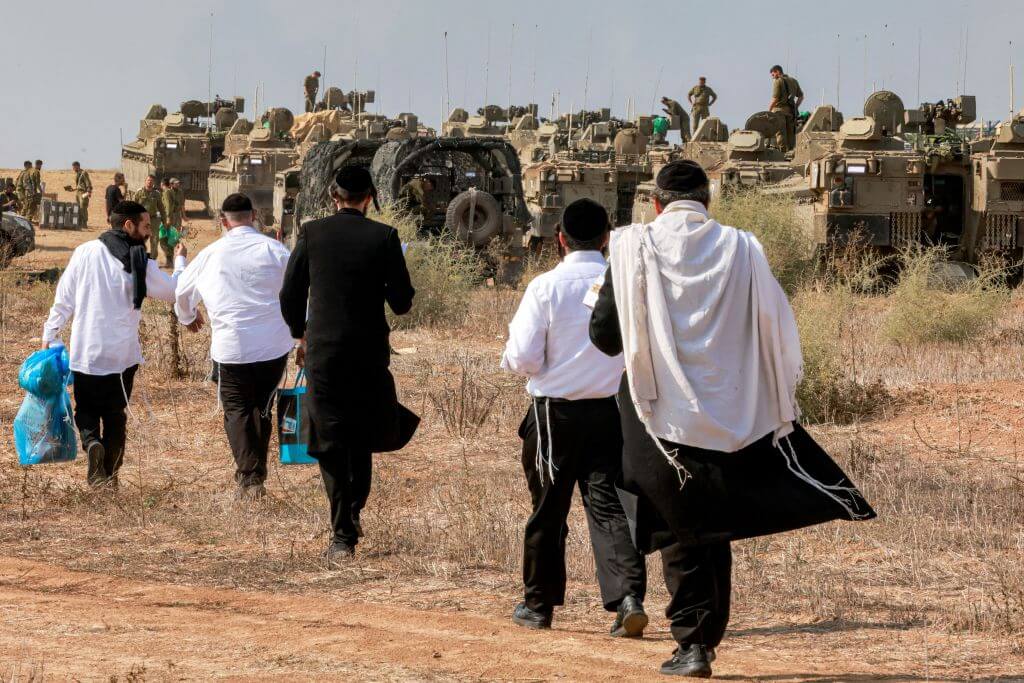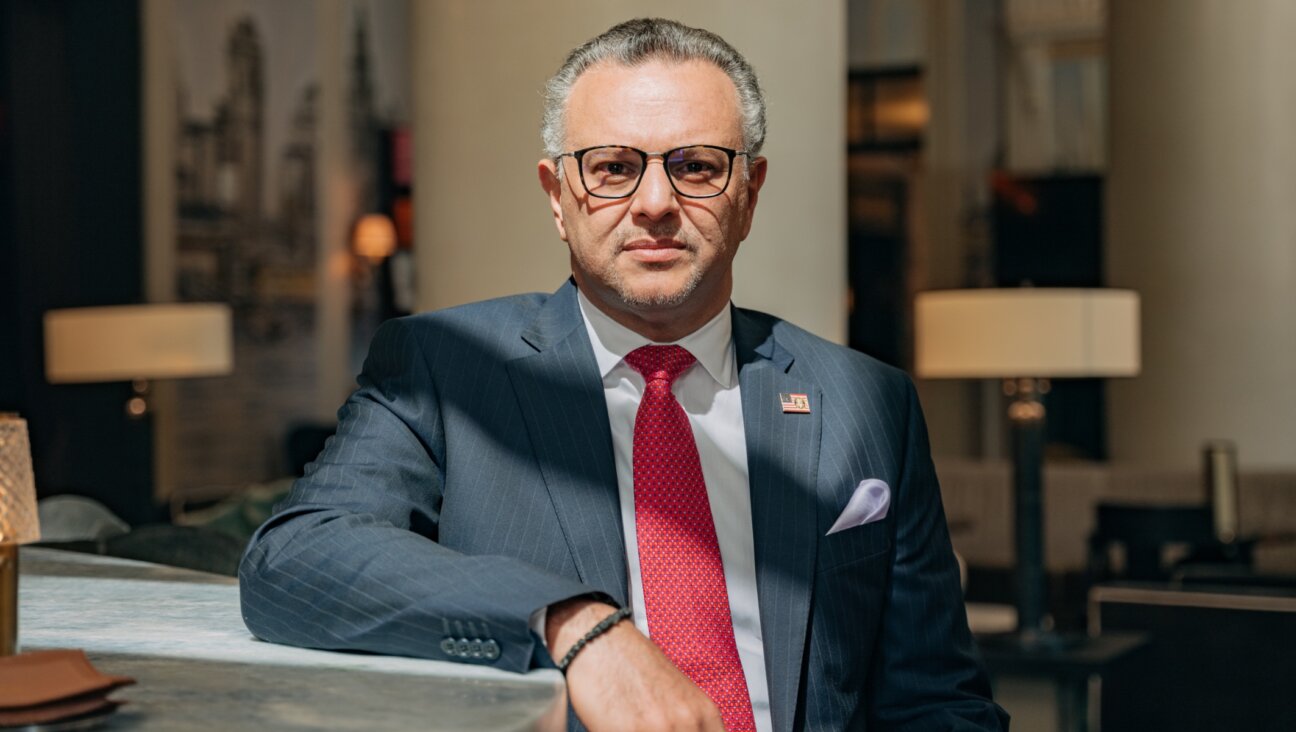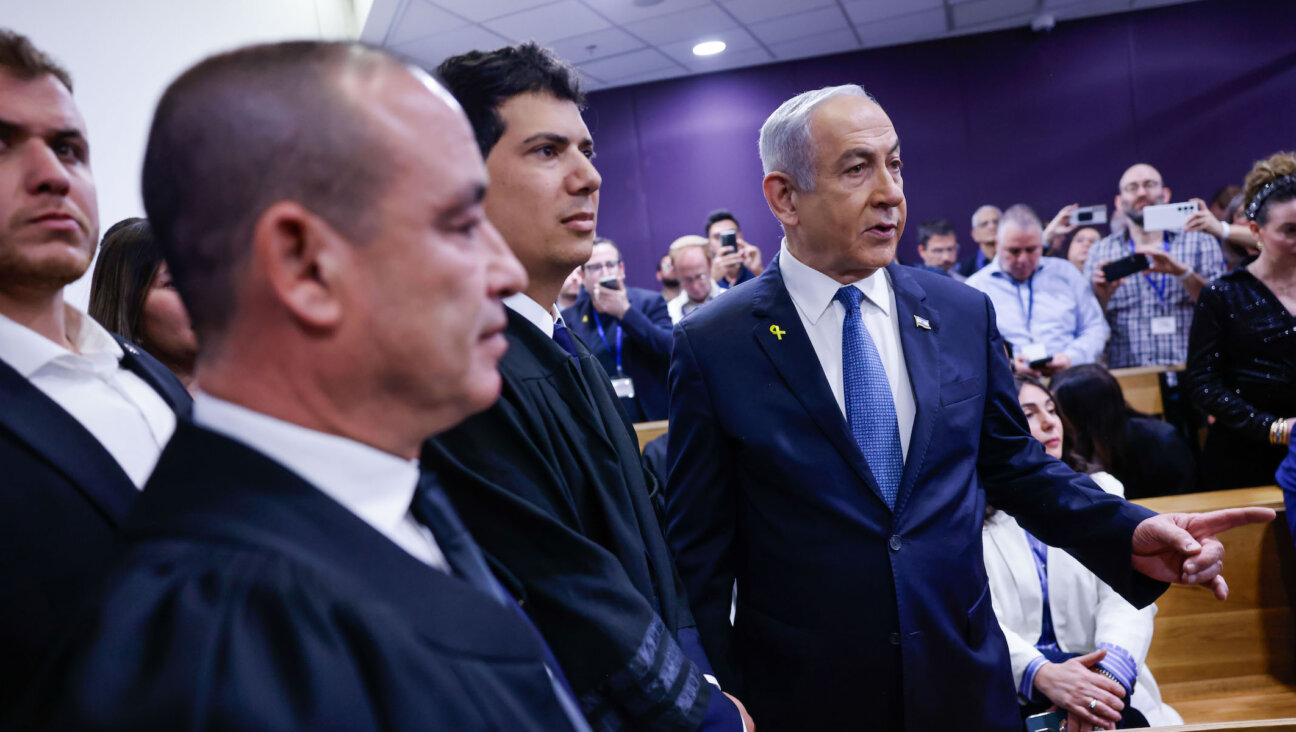Thousands of Haredi men volunteer to serve in Israeli army amid war in Gaza
The group generally avoids military service, but has signed up for duty in the wake of historic attack

Ultra-Orthodox Jews visit Israeli army soldiers on Oct. 11, 2023. Photo by MENAHEM KAHANA/AFP via Getty Images
October was expected to be a contentious month that would deepen divisions within Israeli society. The coalition government was expected to introduce at the start of the winter session legislation that would arrange military draft exemptions for Haredi men. But after the surprise Hamas attack on Israel, the opposite has ensued. An unprecedented number of Haredim have offered to serve.
An Israeli army spokesman, Daniel Hagari, said on Saturday that the IDF has approved 120 of more than 2,000 applicants to begin training on Monday ahead of an expected ground invasion of Gaza. Others will be drafted as volunteers.
Israel called up roughly 360,000 reservists following the Oct. 7 attack on the south border and the ensuing war with Hamas.
Yeshiva students and Haredi women under the age of 26 are generally exempt from military service under a decades-long status quo arrangement between the Israeli government and the Haredi parties, who have increasingly exercised control in the governing coalitions. The Supreme Court nullified the legal exemption in 2017 and mandated the government to create a new conscription law. Efforts to reform or solidify the exemptions have been delayed in recent years given political turmoil.
The IDF recently revealed that only a fraction of the 12,000 potential applicants – 1,200 Haredim – were enlisted annually in the years 2019-2021.
But the Hamas attack changed the dynamic. Haredi medical services and emergency responders groups – like United Hatzalah and ZAKA – led rescue and recovery efforts. Others mobilized to deliver food and essential equipment to reservists and displaced families.
A survey published in The Jerusalem Post showed that 68% of Haredim support military enlistment and 60% support volunteering during times of war.
Avigdor Lieberman, a former finance and defense minister and a harsh critic of the Haredi culture, welcomed the move. “To see so many Haredim young men, of all ages, requesting to enlist in the IDF and to be an integral part of those who bear the burden, especially in these difficult days,” Lieberman wrote, “undoubtedly warms the heart and testifies to the strength of Israeli society.”
A message from our Publisher & CEO Rachel Fishman Feddersen

I hope you appreciated this article. Before you go, I’d like to ask you to please support the Forward’s award-winning, nonprofit journalism during this critical time.
We’ve set a goal to raise $260,000 by December 31. That’s an ambitious goal, but one that will give us the resources we need to invest in the high quality news, opinion, analysis and cultural coverage that isn’t available anywhere else.
If you feel inspired to make an impact, now is the time to give something back. Join us as a member at your most generous level.
— Rachel Fishman Feddersen, Publisher and CEO





















